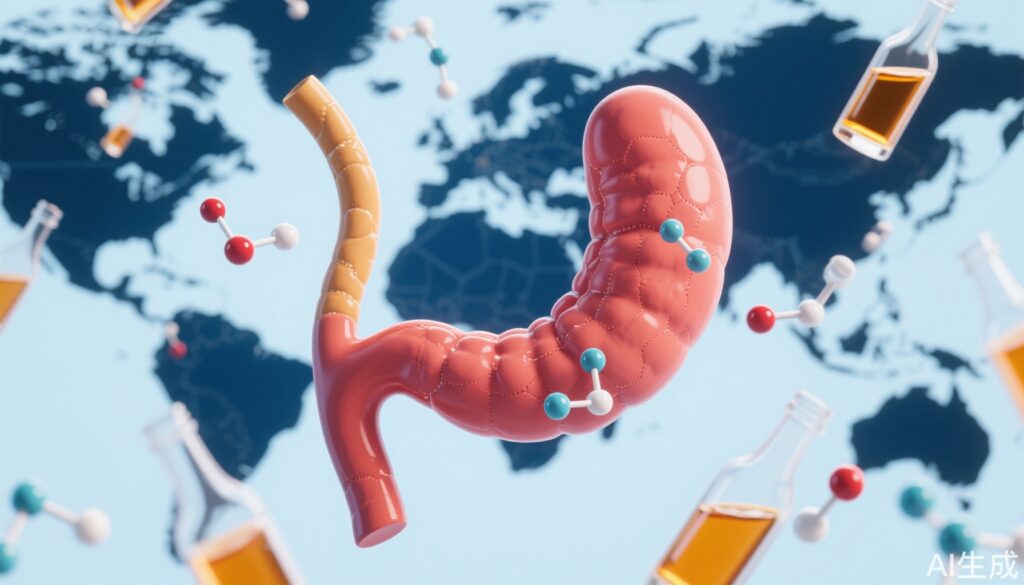Highlights
- Largest pooled epidemiological analysis to date (2.49 million participants) confirms a linear increase in pancreatic cancer risk with higher alcohol intake.
- Risk elevation is independent of smoking and is most pronounced at higher daily alcohol levels, particularly among men.
- Significant regional and beverage-type differences suggest genetic and lifestyle factors modify risk.
- Findings provide robust evidence supporting more stringent alcohol consumption guidelines for pancreatic cancer prevention.
Study Background and Disease Burden
Pancreatic cancer, though only the twelfth most common cancer worldwide, is notorious for its late diagnosis and almost universally poor prognosis. Accounting for approximately 5% of global cancer deaths annually, it remains a clinical challenge due to its aggressive course and limited therapeutic options. Alcohol is classified as a group 1 carcinogen by the International Agency for Research on Cancer (IARC), but its precise relationship with pancreatic cancer has long been debated. Previous assessments by IARC and the World Cancer Research Fund characterized the evidence as limited or suggestive, mainly due to confounding by smoking and heterogeneity in drinking patterns across populations. This uncertainty has hindered the formulation of clear public health recommendations, especially as alcohol and tobacco use often co-occur, and global drinking habits vary widely. A large-scale, multi-regional analysis with individual-level data was needed to clarify this risk relationship.
Study Design
The recent study published in PLOS Medicine (Naudin et al., 2025) represents the most comprehensive effort to date. Researchers pooled individual participant data from 30 prospective cohort studies spanning Asia, Australia, Europe, and North America. Key methodological features included:
- Strict inclusion criteria: Only cancer-free individuals at baseline with detailed alcohol consumption data were considered, ensuring robust comparability.
- Population: Over 2.49 million participants, with 10,067 incident pancreatic cancer cases during follow-up.
- Exposure quantification: Alcohol intake was harmonized and analyzed as both categorical and continuous variables, measured in grams of ethanol per day.
- Statistical modeling: Cox proportional hazards models were used, stratified by age, sex, study recruitment year, region, smoking status (including intensity and duration), diabetes, BMI, height, educational level, physical activity, and ethnicity.
- Disaggregation of beverage types: Beer, wine, and spirits were separately analyzed for independent risk associations.
- Subgroup and sensitivity analyses: Examined effect modification by sex, smoking, region, and drinking behavior; multiple sensitivity checks addressed reverse causality and residual confounding.
Key Findings
Alcohol Consumption Patterns: Among males, the median daily ethanol intake was 10.7g; for females, 5.0g. Men in Asian cohorts had the lowest proportion of drinkers (42%) but the highest intake among those who drank (23g/day).
Alcohol Dosage and Pancreatic Cancer Risk:
- Compared to very light drinkers (0.1–<5g/day), women consuming 15–30g/day had a 12% higher risk (HR=1.12), and ≥30g/day a 13% higher risk (HR=1.13).
- For men, 30–60g/day increased risk by 15% (HR=1.15), and ≥60g/day by 36% (HR=1.36).
- Non-drinking women had no significant difference in risk compared to light drinkers; non-drinking men had a slight risk increase (HR=1.10).
- Every 10g/day increase in alcohol intake associated with a 3% rise in risk (HR=1.03).
Smoking-Adjusted Analysis: Across never, former, and current smokers, alcohol was consistently linked to a 3% higher risk per 10g/day intake, with no significant effect modification by smoking status, underscoring the independent effect of alcohol.
Regional Variations:
- Europe/Australia and North America: Clear linear risk (3% increase per 10g/day).
- Asia: No significant association detected, with statistical tests confirming regional heterogeneity (p=0.003), possibly reflecting genetic, metabolic, or behavioral differences.
Beverage Type Associations: The risk trend was similar across beer, wine, and spirits, though wine in Asia appeared inversely associated with risk, possibly reflecting unique drinking patterns or genetic factors in this subgroup.
Sensitivity and Bias Analyses: Adjusting for smoking-related variables slightly attenuated the alcohol effect, but the overall association remained robust. Excluding early incident cases and restricting to histologically confirmed cancers yielded consistent results. Distinguishing between never- and former-drinkers suggested limited risk carryover from past drinking.
Expert Commentary
This landmark analysis resolves long-standing ambiguity regarding alcohol’s role in pancreatic carcinogenesis. By leveraging large-scale, individual-level data and careful adjustment for confounders, the study provides compelling evidence that alcohol is an independent, dose-dependent risk factor for pancreatic cancer. The lack of interaction with smoking status dispels prior concerns about residual confounding. The regional and beverage-type differences highlight the importance of genetic and cultural factors in modulating risk. Notably, the absence of a significant association in Asian populations may reflect the impact of prevalent genetic variants affecting alcohol metabolism (e.g., ALDH2 deficiency) and distinct drinking behaviors, meriting further research.
However, some limitations persist. Observational studies cannot fully exclude residual confounding, and self-reported alcohol intake is prone to measurement error. The categorization of non-drinkers remains a methodological challenge, as “former drinkers” may include individuals who stopped for health reasons, potentially biasing risk estimates. Despite these caveats, the consistency and magnitude of findings substantially strengthen the case for alcohol as a modifiable risk factor.
Conclusion
The new pooled analysis unequivocally demonstrates that increased alcohol consumption linearly elevates pancreatic cancer risk, independent of smoking and other major confounders. These findings have immediate implications for public health and clinical guidance: reducing heavy alcohol use—especially beyond 15g/day for women and 30g/day for men—should be prioritized as a cancer prevention strategy. Future research should explore the mechanistic underpinnings of alcohol-induced pancreatic carcinogenesis, the impact of genetic diversity, and the trajectories of risk modification upon alcohol reduction or cessation.
References
1. Naudin S, Wang M, Dimou N, Ebrahimi E, Genkinger J, Adami H-O, et al. Alcohol intake and pancreatic cancer risk: An analysis from 30 prospective studies across Asia, Australia, Europe, and North America. PLoS Med. 2025 May 20;22(5):e1004590. doi:10.1371/journal.pmed.1004590
2. IARC Working Group on the Evaluation of Carcinogenic Risks to Humans. Personal Habits and Indoor Combustions. Volume 100E. A Review of Human Carcinogens. Lyon: IARC; 2012.
3. World Cancer Research Fund/American Institute for Cancer Research. Continuous Update Project Report: Diet, Nutrition, Physical Activity and Pancreatic Cancer. 2012.



